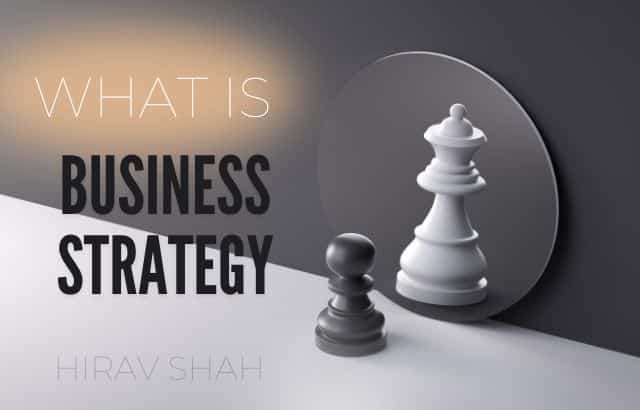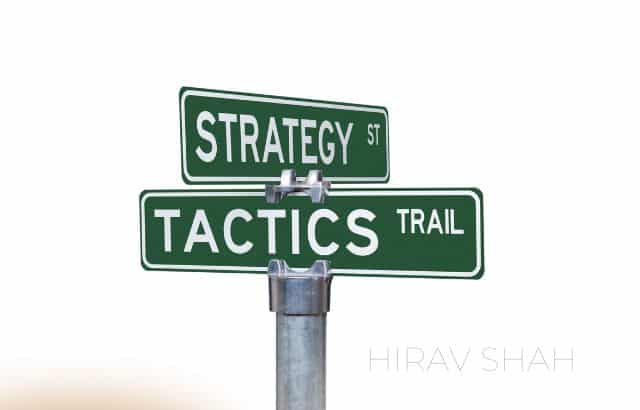Imagine this: You have a groundbreaking business idea, a passionate team, and enough funding to get started. You launch your company with high hopes, expecting rapid growth and success. But months later, you’re struggling. Sales are unpredictable, competitors are gaining ground, and your team is overwhelmed with constant changes.
What went wrong?
Most entrepreneurs jump straight into execution without a solid business strategy. They chase trends, make decisions on the fly, and hope that things will fall into place. But in business, hope is not a strategy—a well-defined business strategyis what separates thriving companies from struggling startups.
So, what exactly is business strategy? And how can entrepreneurs develop one that drives long-term success? Let’s dive deep into the world of strategy and unlock the secrets to building a business that stands the test of time.
Table of Contents
What is Business Strategy?

At its core, business strategy is a blueprint for success. It defines your long-term goals, how you’ll compete in the market, and what actions you need to take to get there.
🔹 Think of it this way: If your business were a car, your strategy would be the GPS navigation system—guiding you from where you are now to where you want to be.
Key Components of Business Strategy:
✔️ Vision & Mission: Where do you see your business in the next 5–10 years? What problem are you solving?
✔️ Competitive Advantage: What makes your business unique? Why should customers choose you over competitors?
✔️ Market Positioning: Who is your target audience? What’s your pricing strategy?
✔️ Execution Plan: What steps will you take to achieve growth? How will you measure success?
💡 Example: Apple’s business strategy focuses on innovation, premium branding, and seamless user experience. Every decision—from product design to marketing—is aligned with this core strategy.
Hirav Shah’s Advice: “A business without strategy is like a ship without a compass—it may move, but it will never reach its true destination.”
Why is Business Strategy Crucial for Entrepreneurs?

Imagine building a house without a blueprint. You lay bricks randomly, hoping they’ll form a solid structure. The result? A weak foundation that collapses under pressure.
Business is the same. Without a strategy: ❌ You waste time and resources on things that don’t matter.
❌ You constantly change directions, confusing your team and customers.
❌ You struggle to differentiate yourself from competitors.
But with the right strategy: ✅ You make smarter decisions and prioritize effectively.
✅ You attract the right customers who align with your brand.
✅ You build a scalable business model that grows predictably.
Hirav Shah’s Advice: “Success in business isn’t about working harder—it’s about working smarter. A solid strategy helps you do just that.”
The 5 Pillars of a Strong Business Strategy
1. Clear Vision & Mission

Every successful entrepreneur starts with a clear vision. Your vision answers: Where do I want to take my business?
🔹 Ask Yourself:
- What is my ultimate goal for this business?
- What change do I want to create in the industry?
💡 Example: Tesla’s mission is “to accelerate the world’s transition to sustainable energy.” Every decision, from product innovation to marketing, supports this mission.
2. Competitive Advantage & Differentiation

If you try to be everything for everyone, you’ll end up being nothing for anyone. You must have a unique edge.
🔹 Ask Yourself:
- What makes my business different?
- How do I deliver more value than my competitors?
💡 Example: Nike’s competitive advantage lies in powerful branding and emotional storytelling—not just selling shoes, but selling an identity.
3. Market Positioning & Customer Targeting

Not every customer is your customer. Your business strategy should clearly define who you serve.
🔹 Ask Yourself:
- Who is my ideal customer?
- What specific problem do I solve for them?
💡 Example: Luxury brands like Rolex focus on exclusivity and premium experiences, targeting high-net-worth individuals.
4. Strategic Growth Plan

A business strategy without an execution plan is just wishful thinking.
🔹 Ask Yourself:
- What are my revenue goals for the next 3–5 years?
- What new markets or products will I introduce?
💡 Example: Amazon’s strategy includes continuous expansion—from books to e-commerce to cloud computing.
5. Performance Metrics & Adaptability

Strategy isn’t static. You need to track performance and adjust based on results.
🔹 Ask Yourself:
- How will I measure success?
- Am I willing to pivot if my strategy isn’t working?
💡 Example: Netflix started as a DVD rental business but pivoted to streaming when market demand shifted.
Hirav Shah’s Advice: “The best businesses don’t just follow a strategy—they evolve it based on market realities.”
Common Business Strategy Mistakes to Avoid
Entrepreneurs often make avoidable mistakes when developing a business strategy. Here are the most common ones:
1. Lack of Clear Direction

If you don’t know where you’re going, how will you get there? A vague or undefined strategy leads to confusion and wasted resources.
🔹 Ask Yourself:
- Can I define my business’s long-term vision in one sentence?
- Do my employees and stakeholders understand our strategy?
Hirav Shah’s Advice: “A clear vision eliminates confusion. When you know your ‘why,’ every decision becomes easier.”
2. Trying to Serve Everyone

Not everyone is your customer. Businesses that fail to niche down and define their ideal audience end up stretching themselves too thin.
🔹 Example: If a luxury brand suddenly starts selling cheap, mass-market products, it loses its exclusivity and confuses its customers.
Hirav Shah’s Advice: “You can’t please everyone—focus on the right customers and serve them better than anyone else.”
3. Ignoring Market Trends

A strategy that worked five years ago may not work today. Many businesses fail because they ignore market shifts and emerging technologies.
🔹 Example: Blockbuster stuck to its traditional rental model, while Netflix adapted to streaming and dominated the industry.
Hirav Shah’s Advice: “Business is like surfing—you need to ride the waves of change or risk sinking.”
4. Failing to Measure Performance

A strategy without performance tracking is like flying blind. You need clear KPIs (Key Performance Indicators) to measure success.
🔹 Ask Yourself:
- Do I have a way to measure my business’s progress?
- Am I making data-driven decisions?
Hirav Shah’s Advice: “What gets measured gets improved. Track, analyze, and optimize—success is a process.”
Business Strategy vs. Business Tactics

Many entrepreneurs confuse strategy with tactics. Understanding the difference is crucial:
🔹 Business Strategy = The long-term vision and overall plan. It sets the direction for the company. 🔹 Business Tactics = The short-term actions taken to implement the strategy. These are the specific moves that help you achieve strategic goals.
Imagine This:
A restaurant wants to become the most recognized fine dining brand in the city (strategy). To achieve this, they implement tactics like: ✔️ Hosting exclusive VIP events
✔️ Partnering with luxury influencers
✔️ Offering limited-edition seasonal menus
Hirav Shah’s Advice: “Strategy is the blueprint, tactics are the tools. Without a blueprint, even the best tools won’t build anything lasting.”
How to Develop a Winning Business Strategy

Now that you understand the fundamentals, let’s build your strategy step by step:
Step 1: Define Your Vision & Goals
📌 Write down where you see your business in 3, 5, and 10 years.
Step 2: Research Your Market & Competition
📌 Conduct competitor analysis and identify gaps in the market.
Step 3: Identify Your Competitive Advantage
📌 Find what makes your business unique and irreplaceable.
Step 4: Develop an Execution Plan
📌 Outline specific steps, from marketing to product development.
Step 5: Measure & Adjust as You Grow
📌 Track key performance indicators (KPIs) and optimize your strategy.
Hirav Shah’s Advice: “A great business strategy isn’t about predicting the future—it’s about preparing for it.”
Conclusion: Strategy is the Key to Long-Term Success

Entrepreneurship isn’t just about taking risks—it’s about taking calculated risks backed by a strong strategy.
🔹 If you want to thrive, not just survive, invest in a well-thought-out strategy. 🔹 Every decision, from marketing to hiring, should align with your long-term vision. 🔹 Your strategy should be flexible, adaptable, and backed by data.
Hirav Shah’s Final Advice: “Success isn’t about doing everything—it’s about doing the right things. Strategy helps you focus on what truly matters.”
🚀 Ready to build a strategy that fuels your business growth? Start today, refine as you go, and stay committed to your vision. The future belongs to those who plan for it.
FAQs: Understanding Business Strategy

🔹 What is the difference between business strategy and business plan?
A business strategy is your long-term vision and competitive approach, while a business plan includes detailed operational and financial planning for execution.
🔹 Can a small business benefit from having a business strategy?
Absolutely! Strategy is not just for big companies—it helps small businesses stay focused, grow sustainably, and compete effectively.
🔹 How often should I update my business strategy?
A strategy should be reviewed quarterly and adjusted based on market trends, performance, and competition.
🔹 What happens if my strategy isn’t working?
Adapt! A strong strategy is flexible. If something isn’t working, analyze why, refine your approach, and pivot when needed.
🔹 Can I build a strategy without experience?
Yes! Research, mentorship, and structured planning can help you create a smart business strategy, even if you’re a first-time entrepreneur.










